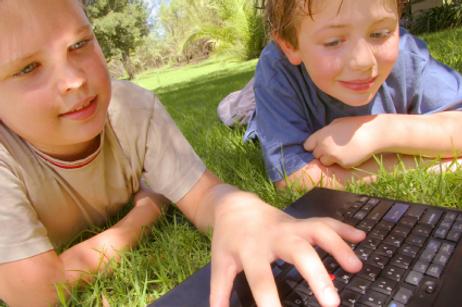Summer learning loss is a concern for parents and teachers alike, as research further documents the reality of this trend. The National Summer Learning Association cites research spanning 100 years that consistently shows students score lower on standardized tests at the end of summer vacation than they do on those same examinations before summer break begins. Evidence also points to the fact that summer learning loss contributes significantly to the widening achievement gap between low-income and middle-income students as they progress through school. What can parents do to prevent this trend with their own children? Check out these ten summer options to keep your kids learning all summer long.
Talk to Your Child’s Teacher
A report at Today advises parents to talk to their child’s teacher prior to the end of the school year to get recommendations on material to cover over the summer. The teacher can alert you to potential gaps in your child’s learning that you can work to fill during the break. Some teachers will even have reading lists or workbook selections that would benefit your child’s summer learning program most.
This video offers parents some tips for summer learning.
The Summer Reading Adventure
Local libraries are a boon to parents and kids over the summer months. Many have summer reading programs, complete with enticing prizes if kids read a certain number of books or log a particular number of reading hours over the vacation months. In addition, regular trips to the library stimulate a child’s love of reading by showing them the many opportunities they have to indulge their love of fantasy, science fiction, and non-fiction.
Check Online Options
If you have trouble tearing your child away from the computer screen during the summer months, make this passion work in your favor by giving your child online learning resources that will feel more like a game than learning time. The iLearn Project lists a number of online options on its website, including Khan Academy, iTunes U, MindSnacks, and MentorMob. Some of the websites suggested by iLearn are free to use, while others may charge a subscription fee or may be purchased as an app.
Incorporating Learning into Summer Fun
Summer learning doesn’t have to mean sticking your nose in a book or workbook when you would rather be outdoors. Parenting recommends using fun activities to incorporate the learning process. One of the easiest ways to combine fun and learning is through classic board games that effectively intertwine math and reading concepts into the competition. You can also use outdoor activities like sidewalk chalk and car games to sneak in a bit of learning time.
Map Out Your Summer Trek
Whether your summer vacation sends you to faraway lands or a couple of hours from home, your kids can participate in the planning process – and learn something new in the process. Today recommends sending kids to a website like Mapquest to research the trek by determining how many miles you will travel and the best route to get you to your destination. If summer travels are not in your future, encourage your child to plan a virtual vacation to the destination of his or her choice.
Participate in Activities Together
Cooking, shopping, and even working outdoors can transform into a learning opportunity for your child. Let your child participate in those activities with you, and you might be surprised at how much math, science, and reading are hidden away in those seemingly mundane chores. As a bonus, you and your child will spend quality time together over the summer months, creating plenty of communication and bonding opportunities.
This video explores summer learning options.
Participate in Summer Camps
Summer camps come in a wide range of styles today, from quick day camps focusing on a single topic to week-long treks teaching your child a wide range of skills. Today, it cites a number of “niche” camps that specialize in specific themes of interest to children, such as computers, sports, and performing arts. Since most states offer a wide range of camps every summer, you should be able to find an option your child is interested in without venturing too far from home.
Play Outside
The Corporation for National and Community Service reports that children who spend more time outdoors in the summer tend to exercise their brains as well as their bodies. The organization asserts that outdoor play, coupled with reading time in the summer, is the best way to prevent summer learning loss. In addition, physical activity is the best way to address the childhood obesity problem that tends to be exacerbated by long months in front of video screens.
Indulge in Enrichment Activities
The neighborhood museum, zoo, and aquarium are excellent places to explore together during summer. These fascinating treks can present learning opportunities children may not typically experience in the traditional classroom. Many of these locales offer free or low-cost workshops throughout the summer, taught by staff with plenty of interesting information to share. Kick the learning process up a notch by having kids write in a notebook about their summer adventures.
Maintain Healthy Balance
Parenting stresses the importance of a healthy balance during summer break. Make a strategic plan for incorporating digital media into each day to ensure the video screens do not become the all-consuming portion of summer vacation. Add a small amount of math problems and structured reading time each week to ensure kids keep their brains working all summer.
Summer learning loss is a real problem, but the good news is that there are many ways to combat it. By incorporating learning into your summer fun, your kids will head back to school in the fall, ready for action.
Questions? Contact us on Facebook. @publicschoolreview














